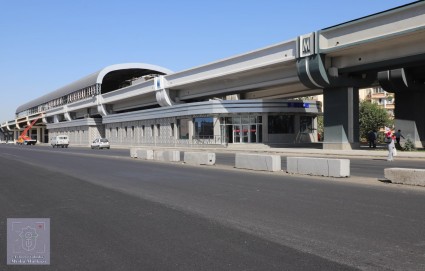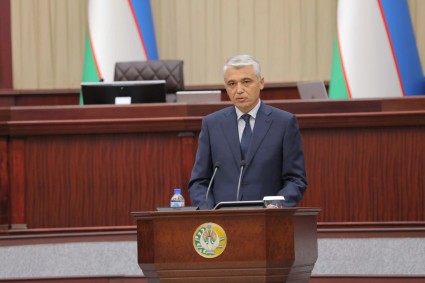Chairperson of the Senate Tanzila Narbayeva noted that recently the public has been talking about systemic problems related to water, various critical and analytical speeches and well-founded opinions have been expressed, but officials are silent.
At the last session of the Senate, B. Alikhanov made a report on the rational use of water resources.
Water consumption in Tashkent is reported to be sometimes 400 liters per capita per day. This is much higher than the that of other cities in the world. For example, per capita daily water consumption in Berlin is 124 liters, 156 liters in Amsterdam, 165 liters in London, 249 liters in Moscow and 204 liters in Chinese cities.
About 90% of potable water in the country is used in agriculture (the world average is 65%). In public utilities, this figure is 4.5 percent, in industry and energy - 4.3 percent, in fisheries - 1.2 percent.
Water consumption per hectare in agriculture is 2-2.5 times higher than in many countries. There are significant losses in the water delivery to crop areas. Irrigation systems are malfunctioning. In addition, the volume and quality of groundwater is declining.
According to Alikhanov, outdated methods of water use are used in sectors of the economy, social facilities, and in some cases in agriculture. Water management, use, management and objects of water management are not fully digitized. At the same time, the use of drinking water has increased in other areas. Elementary rules are not being followed at the points of water supply networks laid in markets, streets, service centers and other densely populated places. Due to the inattention and irresponsibility of officials, there are cases of waste of water.
Tanzila Narbayeva commented on the problems of wasting of the country's water resources, made conclusions from the global water shortage problem and stressed the need to adapt to these conditions, learn how to save water and use it rationally.
“The main issue that is waiting to be resolved in this area is the issue of wasteful and thoughtless use of water. In everyday life, we often encounter cases of unnecessary and aimless waste of water.
Recently, there has been a public outcry about systemic problems with water. Various critical and analytical statements and well-founded opinions are expressed. But officials are silent. We do not see comprehensive measures aimed at the rational use of water.
At the same time, even in many developed countries of the world, no matter how high their standard of living is, very serious attention is paid to water conservation, various innovations are being introduced.
And we have not yet fully formed a culture of rational water use, from the level of household to large state organizations. Especially in our large cities, cases of waste and lack of water conservation are striking.
According to the UN, about 1.5 billion people in the world do not have access to clean drinking water, and 2.3 billion people are forced to drink water that does not meet sanitary requirements.















